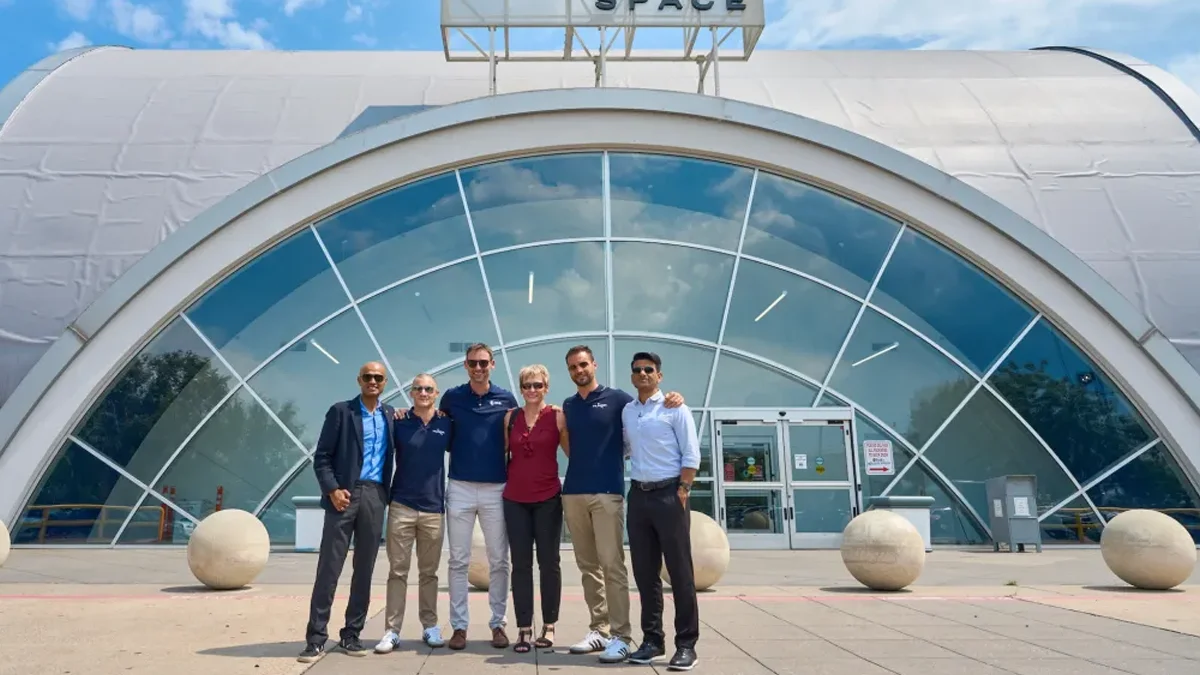Necessary Always Active
Necessary cookies are required to enable the basic features of this site, such as providing secure log-in or adjusting your consent preferences. These cookies do not store any personally identifiable data.
|
||||||
|
||||||
|
||||||
|

Axiom Space is getting ready for its fourth mission to the International Space Station (ISS). Axiom Space is set to launch its private mission on Tuesday, June 10. As reported by TechCrunch, Axiom’s CEO Tejpaul Bhatia called it “a little bit of a victory lap.” This time, the mission will carry astronauts from India, Poland, and Hungary, the three countries that are sending people to space again after a long time.
This is Axiom Space’s second mission, where all the astronauts are from national governments. Each country will send one astronaut to the ISS.
This mission, called Ax-4, is important for several reasons. It is the company’s fourth space trip, and the first one is expected to earn enough money to cover its costs. Axiom lost money on its first three missions, so this is a big milestone. “These ISS missions are not our business model,” said Bhatia. “But they bring in revenue and help show the demand for space travel.”
Axiom doesn’t plan to make all its money from flying astronauts to the ISS. These early flights are helping the company build its brand and show the world what it can do. Bhatia also said these missions inspire people, especially in the countries sending astronauts. “It shows how space is opening up because of commercial companies,” he said.
The Ax-4 crew includes astronauts from India, Poland, and Hungary. The mission will be led by Peggy Whitson, a highly experienced astronaut who has spent more time in space than any other American. She now works with Axiom Space and will guide the new astronauts during the mission. The team will stay at the ISS for around two weeks and will do science experiments and outreach activities.
FAxiom has bigger plans for where the company is building its space station. Right now, it is working on special modules that will first attach to the ISS. Later, these parts will detach and become a new, free-flying station called Axiom Station.
Instead of building its rockets, Axiom works with other space companies. It uses SpaceX’s Falcon 9 rocket and Dragon spacecraft to send people to space. Axiom acts like a space travel organizer. It brings together everything needed for a mission: rockets, training, and astronauts. “No one can do this alone,” said Bhatia. He believes that many companies and countries will need to work together to explore space in the future.
There has been some recent drama in the space industry. Former President Donald Trump had a public fight with SpaceX CEO Elon Musk and said he would cancel government contracts with Musk’s companies. Musk even said he might stop using the Dragon spacecraft, which Axiom relies on. He later stepped back from those comments, and Axiom did not comment on the situation.
When asked about future space funding and the role of governments, Bhatia said that governments have already helped open space. Now, it’s time for private companies to take the lead. “It’s not that government investment will open space,” he said. “They’ve already done it. Now it’s the entrepreneurs who will build the bridge to the next stage.”
Tejpaul Bhatia is new to his CEO role, having taken over just a few weeks ago. Before this, he was Axiom’s Chief Revenue Officer for four years. He also worked at Google Cloud in the past. Though he didn’t start in the space industry, he said, “When I was daydreaming, it was always about space.” Like many space company leaders, Bhatia hopes to go to space one day. “I would love to go,” he said. “I have no doubt that we will all go.”
The Axiom spaceflight update shows how private companies are changing the future of space travel. This latest private space trip is not just about sending astronauts to space; it’s about opening the door to space travel for civilians and building the first private space station.